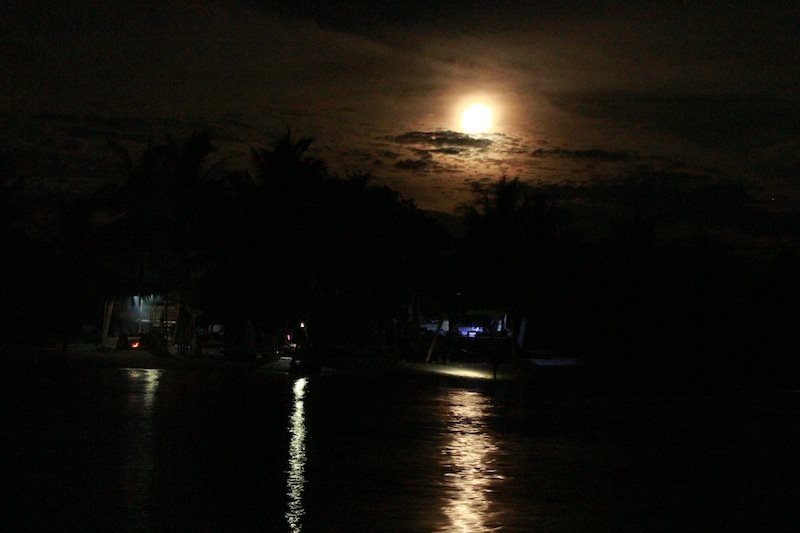The war in Iraq and the war and counter-war on terrorism rages everyday on our television screens and newspapers
The terrible calamity of war is often forgotten amid the media orgy of bombings and beheadings. But if we took time to turn off our TV screens and close our newspapers, we would notice the tiny army of polite visitors who reach our shores and head off to far flung areas of PNG to say goodbye to loved ones who died in the most terrible war the world has ever seen — World War II.
Last week, 12 such visitors arrived in Lae and headed to Salamaua to say good bye to their fathers who died in Morobe during the war. These visitors were all elderly Japanese — the youngest may have been in his late 50s. Some of them last saw their fathers when they were very young, most of them never at all.
The visitors came from all over Japan, united in this pilgrimage.
After arriving in Salamaua, the visitors made their way along the narrow strip of land bordered by the sea on both sides that led to Salamaua point.
An old anti-aircraft gun was still positioned facing the sky as we passed and unexploded bombs lay half buried in the sand.
Finally they arrived at a playing field with rugby posts and a basketball court. They decided that here would be a good place to conduct their ancient ceremony to honour the spirits of their fathers.
Under the shade of an old mango tree, small flags of Papua New Guinea and Japan were unfurled and a small shrine was erected facing inland towards the mountains. This was because most of their fathers died in the jungles, or out at sea, in places hard to reach.
By conducting the ceremony at that point, they could encompass the ocean and the dark jungles in one act.
The visitors lit incense and put perfume, sweets and food on and around the alter.
One old man knelt before the shrine and the sad ceremony began.
With Buddhist beads they prayed, chanted songs and cried.
Later, after the ceremony was over and the boat cut back across the ocean towards Lae, one of the Japanese men told me his father died at sea somewhere underneath us.
“I was six-years-old when my father died here in the war. Nothing remains of him. He was 35 years old,” said Torikai Yasuhiko, pointing down towards the ocean floor.
He told me this was his first visit to PNG and he had come specifically to see this stretch of the ocean.
“I can’t stop crying,” he said. “I am so glad I came here.”
The 12 were taking a week long trip to Salamaua, Popondetta, Wewak and Port Moresby to conduct the ceremonies for their fathers.
I asked them how many were grandparents and great-grandparents. All of them held up their hands, showing different digits for the number of children they had, grand children and great grandchildren. It was smiles all around.
World War II consumed many lives. In Japan, as in America and other countries who were caught in it, there was a generations of fatherless children who grew up to become parents and parents of parents.
And every year, members of this generation make the voyage to PNG to honour their fathers who died in our jungles and oceans.
Weekend Edition Fri-Sun 05-07th November, 2004
(article I wrote in 2004) Source Post Courier
